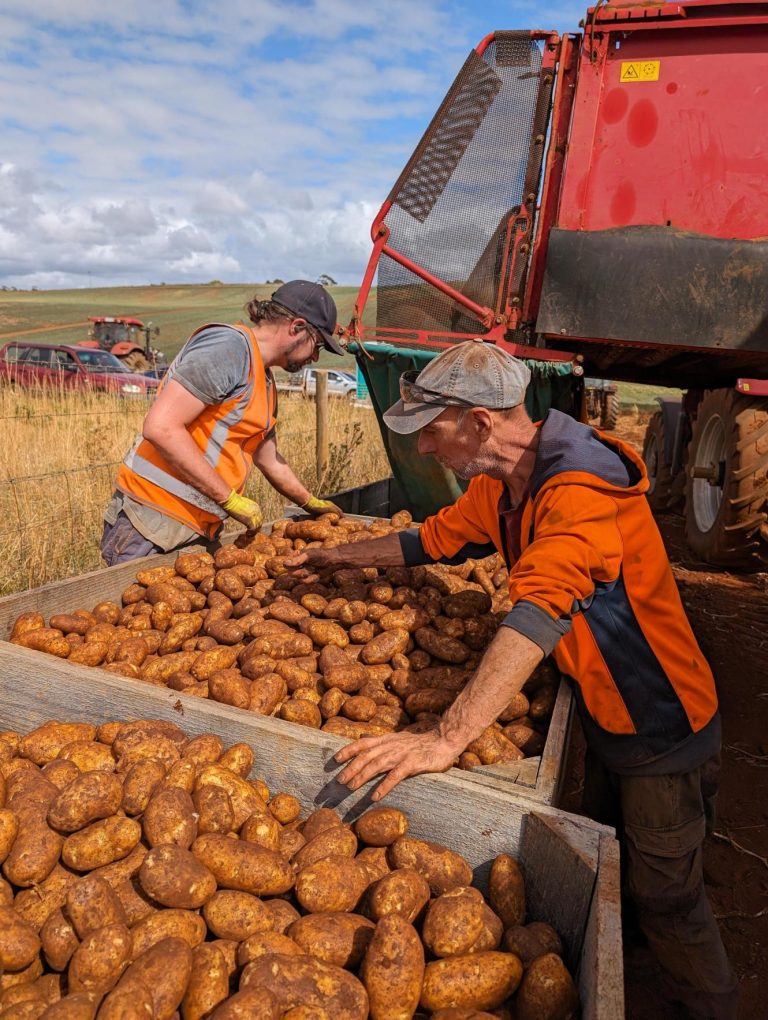Farm labourers play a vital role in agriculture and are responsible for ongoing food production for millions of people globally. However, the current post-pandemic worker landscape continues to undergo significant changes which affect both farm culture and turnover.
The Three Main Post-Pandemic Challenges
The Absence Of Local Workers
Despite demand, many haven’t returned [to their positions] – and even new local workers aren’t interested in entering the industry.
This leads to a persistent local shortage, and increased reliance on backpackers and foreign workers. While these provide necessary labour, they often lack local workers’ knowledge and experience, and have shown lower job commitment in the long term.
A Growing Sense Of Worker Entitlement, Including Backpackers
Many, both local and foreign, now expect high wages and benefits even for seasonal and temporary work.
They’re also unwilling to work long hours in often harsh conditions, resulting in high turnover and a lack of workforce stability. This entitlement is affecting farmer-worker relationships, as workers are less likely to be loyal, and more likely to switch jobs frequently.
A rise in untrustworthy backpackers. Despite their role in providing necessary labour, backpackers are often inexperienced and untrained, leading to a breakdown in trust and cohesion among workers and farmers.
Backpackers tend to be less committed: they often leave suddenly, or simply don’t show up, causing high turnover and workforce instability. Their dishonesty about travel plans, including not being transparent, only adds to the difficulties faced by the industry.
The Result Of These Challenges? A Negative Perception Of The Industry
This negative perception affects both workers and farmers, leading to a potentially toxic culture with low morale and high turnover. Unfortunately, many people unfamiliar with the industry hold misconceptions that agricultural jobs are low status, with no potential for future happiness or fulfillment.
These misconceptions are widespread and harm the industry’s reputation, making it even more difficult to attract and retain dedicated, reliable workers. This only adds to the issues stated above.
The industry is at a crossroads, and it’s crucial that the right decisions are made to ensure its future.
Farmers need to act now to improve workplace culture and address these industry challenges.
Three Possible Ways
Establishing Zero-Tolerance Towards Negative Attitudes And Behaviours
This is crucial for the well-being and safety of workers – and crucial business success. So, what does this look like? As an example, if your best worker’s attitudes and behaviours are spreading toxicity, it might be worth considering if these can be turned around. And if not, perhaps it’s time they moved on.
Offering Competitive Wages And Benefits.
This could include offering fair pay, health insurance, and other benefits such as paid time off. This will help to attract and retain workers and improve morale and commitment.
Upskilling Workers Through Training And Support.
This could involve offering programs or courses for both new and current workers, providing apprenticeship or traineeship opportunities, and delivering continuous support and mentorship. These would enhance workers’ skills and knowledge and strengthen their commitment to the industry.
Potential Pitfalls
Of course, this approach must align with a farm’s objectives and financial limitations. Promising unaffordable high wages and benefits isn’t sustainable. Also consider factors such as job responsibilities, working hours, and shift lengths, rather than wages focus alone.
Incentives such as subsidising accommodation and travel, offering additional paid leave, or one-off performance-based rewards like bonuses or a profit percentage, can also motivate workers.
However, it’s crucial that rewards offered are genuine, consistent, and fair across the workforce, and accurately reflect each worker’s efforts and contribution.
Final Thoughts
Revamping workplace culture in the industry is an industry game-changer. By prioritising open communication, diversity and inclusivity – and safety – farmers can create a positive atmosphere.
A culture built on trust and mutual respect leads to increased financial performance, job satisfaction, productivity, and employee engagement, as well as attracting and retaining top talent.
The industry has been hit hard. Nevertheless, with concerted efforts to improve environment and culture, it can bounce back and maintain its vital role in feeding the world.
The current landscape presents a unique opportunity to change the face of agriculture and enhance its reputation. For reinvention. And for the industry to emerge even stronger, ready to meet the demands of the future.










